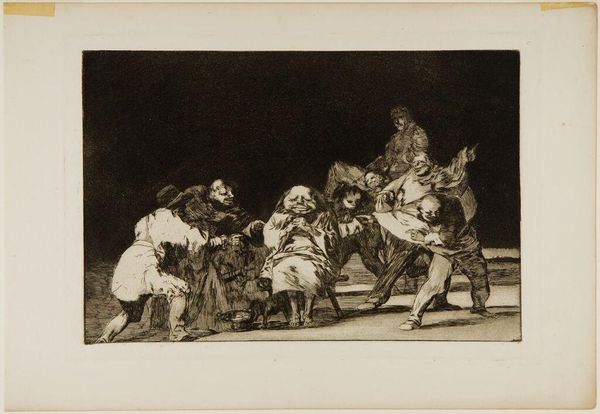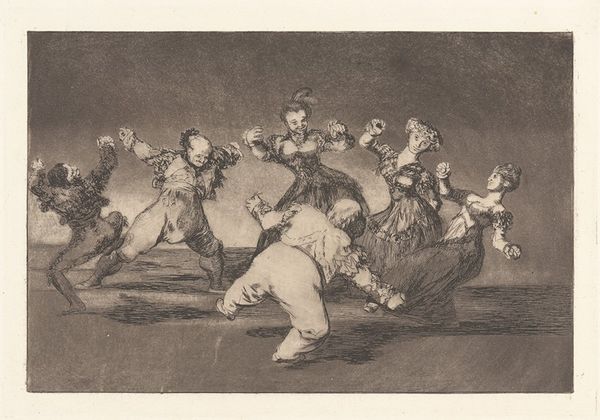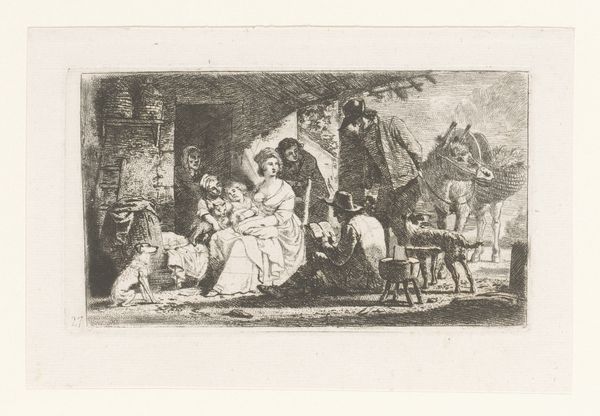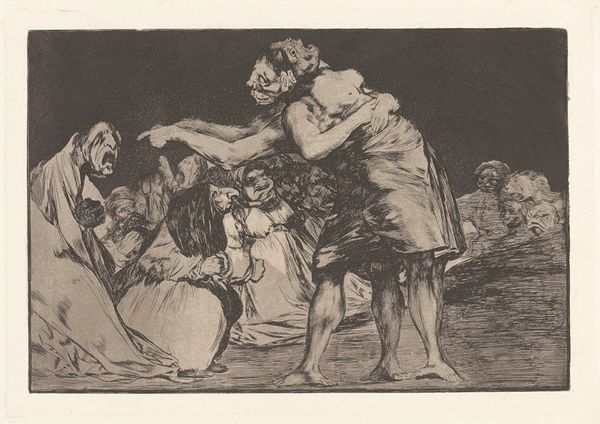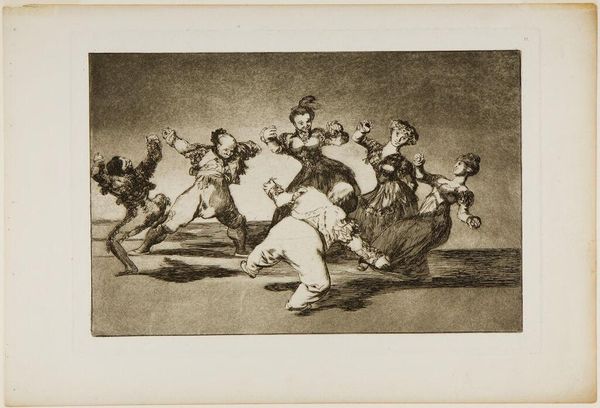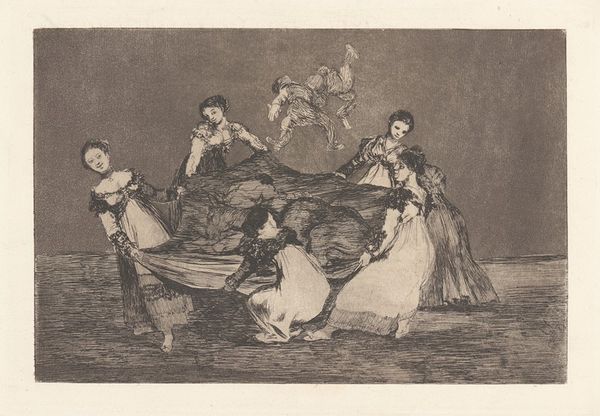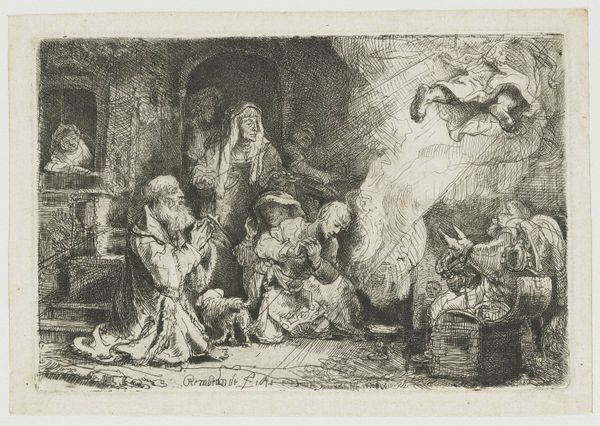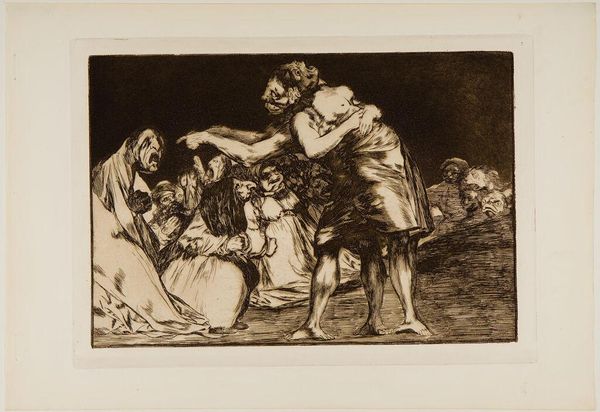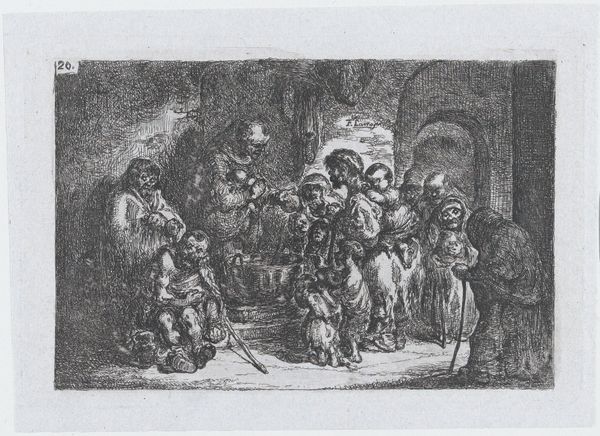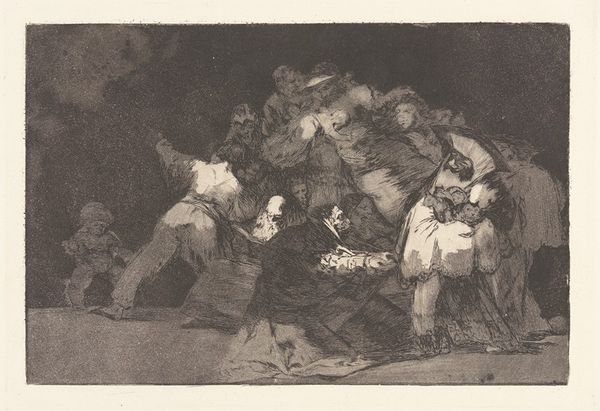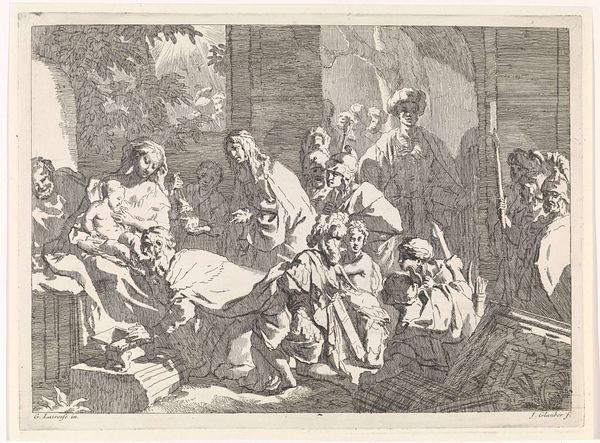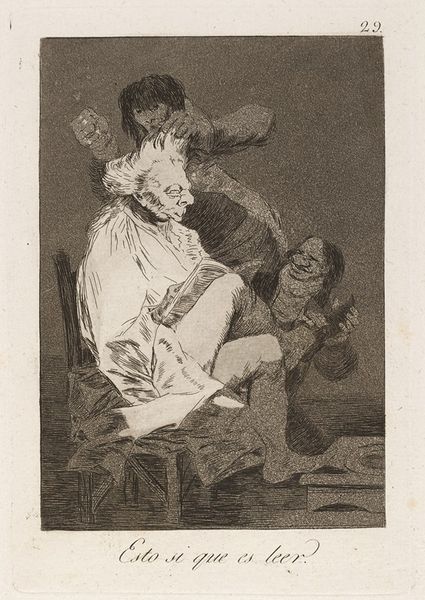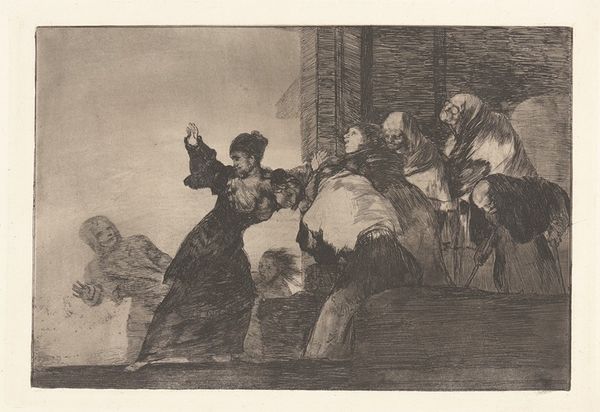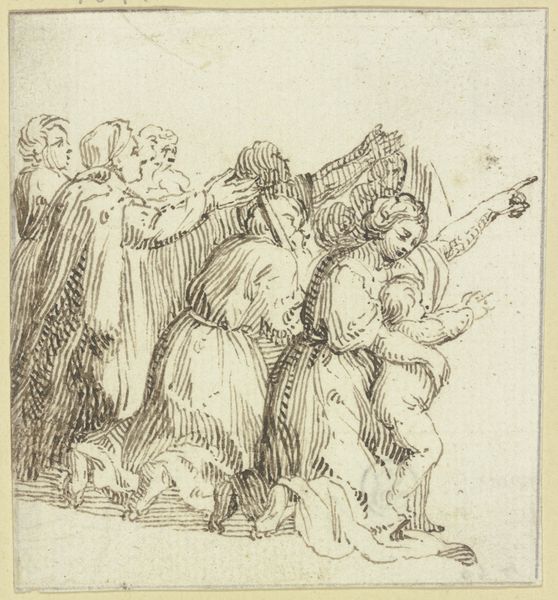![He Who Does Not Like Thee Will Defame Thee in Jest [Loyalty] by Francisco de Goya](/_next/image?url=https%3A%2F%2Fd2w8kbdekdi1gv.cloudfront.net%2FeyJidWNrZXQiOiAiYXJ0ZXJhLWltYWdlcy1idWNrZXQiLCAia2V5IjogImFydHdvcmtzLzYxN2MzNWRiLTM4ZDQtNDU3OC1iZDQ1LTAxNDg0MDk5MjAwZS82MTdjMzVkYi0zOGQ0LTQ1NzgtYmQ0NS0wMTQ4NDA5OTIwMGVfZnVsbC5qcGciLCAiZWRpdHMiOiB7InJlc2l6ZSI6IHsid2lkdGgiOiAxOTIwLCAiaGVpZ2h0IjogMTkyMCwgImZpdCI6ICJpbnNpZGUifX19&w=1920&q=75)
print, etching
#
narrative-art
# print
#
etching
#
old engraving style
#
figuration
#
romanticism
Copyright: Public Domain: Artvee
Editor: This is "He Who Does Not Like Thee Will Defame Thee in Jest", one of Francisco Goya’s etchings from around 1813-1820. The scene is unsettling, a mob surrounding some central figure. How do you interpret this work? Curator: It's a potent image of social power, isn't it? I see a biting critique of societal structures, how easily a community can turn against an individual. Consider the context: Goya lived through immense political turmoil in Spain. Do you think the figures represent specific political actors or social groups from that period? Editor: Possibly? I hadn’t thought about specific people, more a general unease…like they’re grotesque caricatures. Curator: Exactly! The exaggerated features heighten the sense of the absurd, but it's an absurdity rooted in very real power dynamics. The print becomes a broader commentary on the weaponization of ridicule, how easily public opinion can be manipulated to ostracize or even destroy someone. How do the themes of loyalty and defamation play into today’s political and social climate? Editor: Well, “cancel culture” comes to mind immediately – how reputations can be ruined quickly online. The lack of due process is terrifyingly similar to what I think Goya’s showing us. Curator: Precisely. This print serves as a chilling reminder of the enduring dangers of unchecked power and the importance of resisting the urge to blindly follow the crowd. It’s a dark reflection on humanity’s capacity for cruelty disguised as humor. Editor: It’s made me rethink the responsibilities we have within our communities. Curator: Absolutely. It highlights the need for constant vigilance against injustice, even—or especially—when it comes wrapped in a joke.
Comments
No comments
Be the first to comment and join the conversation on the ultimate creative platform.
